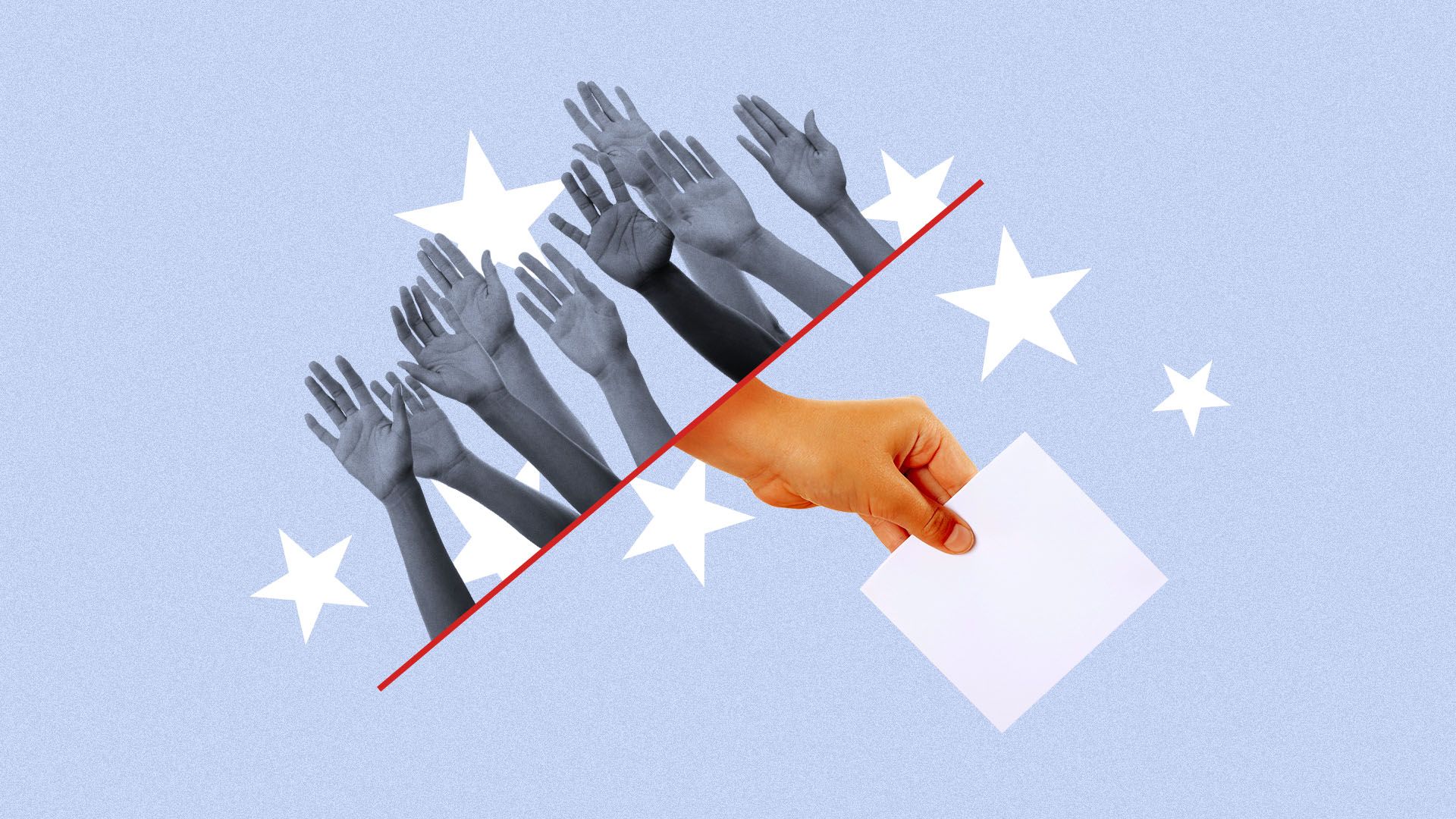States trying to avoid repeating Iowa's caucus nightmare
Add Axios as your preferred source to
see more of our stories on Google.

Illustration: Sarah Grillo/Axios
In the wake of Democrats' Iowa disaster, the Nevada Democratic Party has abandoned the problematic app — and Wyoming Democratic Party officials tell Axios they will conduct a thorough run-through with their own technology ahead of their caucuses.
Why it matters: The technological failure in Iowa caucuses is becoming another nail in the coffin of the caucus system, which nearly a dozen states have ditched and replaced with primaries since 2016.
What to watch: Nevada and Wyoming are the only other two states that will hold traditional Democratic presidential caucuses this year, on Feb. 22 and April 4, respectively.
- North Dakota also has a caucus, but it will be "firehouse style," allowing participants to cast ballots at certain locations over several hours — closer to a primary.
Nevada Democratic Party Chairman William McCurdy II announced on Tuesday that the party won't use the same app used by the Iowa caucus.
- "We had already developed a series of backups and redundant reporting systems, and are currently evaluating the best path forward," he said in a statement.
In Wyoming, there are three ways for registered Democrats to participate in their caucus, including mailing in or dropping off ballots in person ahead of time.
- "That gives us the added benefit of being able to iron out any problems that pop up before our actual caucus date," party spokesperson Nina Hebert told Axios.
- The Department of Homeland Security claims to have offered to help test the Iowa Democratic Party's app. While the Wyoming party has yet to receive an offer, Herbert said the party "would certainly welcome any testing assistance from federal agencies that are experts in collecting voting."
Between the lines: There are broader issues with the caucus format, including the fact that the lengthy evening process can make it difficult for people who work at night or care for young children or older parents to participate. Because participants disclose their preferences in a group format, it also can deter those who want their vote to be private.
- As the New York Times reported last year, caucuses tend to "be dominated by the most motivated, engaged and informed voters, who also tend to be more ideologically consistent."
The big picture: Caucuses are on their way out. Per NPR's calendar, Democrats held caucuses in 14 states and five U.S. territories in 2016,
- Then, in 2018, the Democratic National Committee encouraged state parties to use a primary system rather than caucuses.
- It also passed sweeping rule changes that stripped superdelegate powers and encouraged state parties to make their primaries and caucuses more accessible.
"After the 2016 election, Maine had the foresight to improve their process for choosing the Democratic nominee," Maine Democratic Party spokesperson Seth Nelson told Axios.
- Primaries allow more people to participate in the selection of the Democratic nominee by not restricting participants to a certain time or place, Nelson said.
